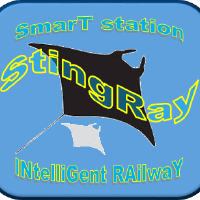Ongoing research projects

RESTART
The RESTART Foundation is a partnership between 25 Italian universities (e.g., the Sant’Anna School and the University of Rome La Sapienza.), research centers (e.g., the Italian National
Research Council), and companies (e.g., Vodafone and Ericsson). The goal of the RESTART project is to leverage DTs to provide a structural improvement
of telecommunications research and development in Italy, supporting the digital transformation of industries, and growth of related research and professional
communities.
[Read more.]

ADVENTURE
The ADVancEd iNtegraTed evalUation of Railway systEms (ADVENTURE) project develops innovative solutions for the evaluation of railway systems. Using Model-Driven Engineering (MDE) methods and multi-paradigm or multi-formalism approaches to help create bridges between different abstraction levels, the project focuses on the following objectives:
Qualitative evaluation of safety of complex distributed railway systems, by means of diverse techniques such as compositional model checking, synthesis of specifications given as behavioral interfaces, and tool support for relating specifications with implementations; Quantitative evaluation of dependability attributes in spite of failures, in particular considering communication failures, through quantitative modeling and evaluation of the timed failure logic of the system; Quantitative evaluation of trade-offs between energy efficiency and availability/performance, considering different smart policies of energy saving and taking into account failures, criticalities, and priorities of the system under analysis.[Read more.]

QUASAR
The QUASAR project aims to develop a platform to support the digitization of asset management processes in Industry 4.0 contexts by promoting an advancement of the JARVIS framework through quantitative diagnostic and predictive analysis methods based on data and models derived from industrial practice artifacts. A digital “Plant Booklet” is prepared for the persistence and exposure of information such as observations and measurements of the operational and logistical-geographical conditions of internal assets. [Read more.]

JAVIS
The goal of the JARVIS project is to create a HW/SW framework capable of supporting the integration, operation and maintenance of industrial systems within the Industry 4.0 Strategy by facilitating interaction between physical devices with telemetry capabilities, software agents with data analytics roles and human operators involved in management and control processes. JARVIS leverages the emerging paradigm of ChatBots to offer a communication channel between authorized human personnel and machines.
[Read more.]
Past research projects

STINGRAY
The goal of the STINGRAY project was to renew the role of a railway station, traditionally perceived as a meeting place for the city, in order to strengthen its importance and integration into the Smart City of the future. The project focused on the study, design and development of a station communication infrastructure, integrating electrical and wireless technologies to create a LAN network on station facilities and enable control and monitoring of station equipment as well as added-value services such as connectivity, monitoring, video surveillance, environmental detection and info-mobility for customers and staff.
[Read more.]

GENIALE
The goal of the GENIALE project (Engineering of an electro-mechanical system for the automatic execution and interpretation of biological analysis through a scanner and an integrated processor) was to create a highly innovative tool for the automatic execution and interpretation of biological analysis, capable of integrating a subsystem for the preparation of slides with a subsystem for subsequent scanning and computerized analysis.[Read more.]

INDIGO
The objective of the INDIGO project (development of an intelligent device for the diagnosis and monitoring of railway systems) was to provide a solution in the field of railway stationary diagnostics, in order to prevent possible accidents caused by the occurrence of physical and mechanical problems that may occur over time.[Read more.]

RACE
The goal of RACE (DATA-BASED RESEARCH IN CARDIOLOGY ON THE APPROPRIATENESS OF CARE) was to deliver appropriate health care to the patients using less resources.
“Appropriateness” is the degree of suitableness by which the medical/scientific/technical knowledge are employed to diagnose or treat illnesses, and improving this is the only way to deliver better National Health Care services: “deliver the right service to the right subject, at the right time, by the right operator, in the right department”.[Read more.]

SISTER
The goal of SISTER (Signalling & Sensing Technologies in Railway application) is to innovate the light rail system with an improved capability to detect dangerous situations, through the development, integration and assessment of innovative technologies for signalling, communication and remote sensing.[Read more.]